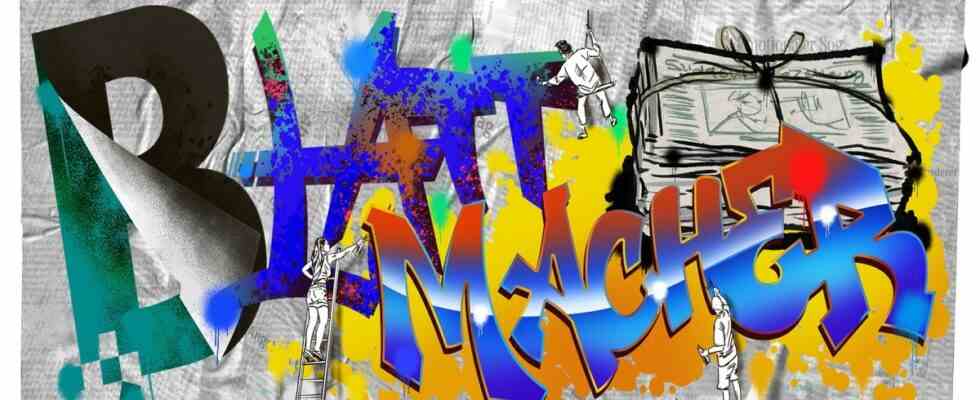“The corona pandemic dominates life – there must be no contact with friends – the author therefore stays at home – and his blog appears in rhyme.”
Yes, normality was far away in the 2020/21 school year. The 1.2 million pupils in Bavaria were just sitting in their classrooms full of hope when they went home again. This was followed by alternating lessons, distance learning and a real rollercoaster of emotions. If you leaf through the winning editions of the Blattmacher newspaper competition these days, you will find impressive evidence of a crazy time that will go down in history.
The students chose very different formats to capture everyday life in times of a pandemic. An author of Franzi for example, kept a diary throughout the school year. On five pages, the student at the Franziskus School in Bad Windsheim describes the spirit of optimism at the beginning of the school year in short, concise sentences – and how everything then collapses again. “I woke up at three o’clock last night, couldn’t sleep again,” she wrote in spring 2021, when distance learning prevailed. Writing therapy and history in one.
in the Wallburg Express the editors of the Georg-Göpfert-Mittelschule in Eltmann depict everyday Corona life with a double-page series of pictures. Arrows on the floor for walking routes, worksheets passed through a window, wool blankets for the students seated in cool, ventilated rooms: all thoughtful images from a memorable time.
Others try to pour their emotional cocktail into humor. This is how the fictional, but quite eloquent writer of letters to the editor Nils Nörgler writes in JFM Read me, the school newspaper of the Johann-Michael-Fischer-Gymnasium in Burglengenfeld: Some guy named “Mebis” was supposedly so overburdened with the school thing. “He crashed all the time, so he had to make an effort.” That Mebis is actually a platform and not a guy: free!
Writing helps in difficult times
It’s simply a deeply human need to process crises by writing them off your chest. Even if only for oneself. There are examples of this in history that are older than any modern newspaper. For example, we are so well informed about the horrors of the Thirty Years’ War because the mercenary Peter Hagendorf kept a diary about his campaigns – and even about his alcohol addiction.
And we know from the writings of the Nuremberg executioner Franz Schmidt how terrible it used to be to have to live on the fringes of society. He reported not only about his bloody work, but also about the consequences that were associated with it for himself. “Normal” citizens were not allowed to have any contact with him quasi qua office. It was only in later years that he finally managed to rise from being an outsider to being a recognized fellow human being.
We don’t know exactly whether writing helped Hagedorn and Schmidt deal with the everyday and the new, with the beautiful and the terrible. However, we know that they must have considered it necessary to collect and document impressions and events, otherwise they would hardly have taken on this work. Today such testimonies help us to understand the long past. How people once ticked and lived, what they knew and believed, what occupied and challenged them. It might even help us a bit to understand ourselves.
Will the collected Corona impressions, which can also be found in school newspapers, one day also enlighten people in the distant future? There is something beautiful about the idea. Especially since the school newspapers also reflect the newly gained appreciation for the normal everyday school life. “The school shouldn’t close anymore. I want to keep going to school,” writes the chronicler of the Franzi. in the Wallburg Express at the end of the photo series, a wide, inviting “Welcome” is emblazoned in colorful letters on the board. Nils Nörgler is also happy: “Everyone goes back to school in Persenz or something and then we’ll see each other again safely.”

